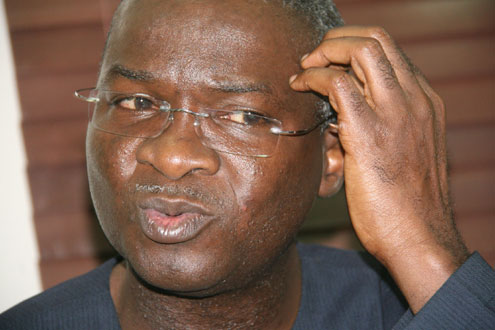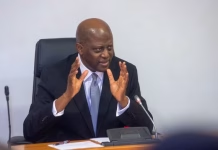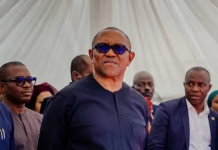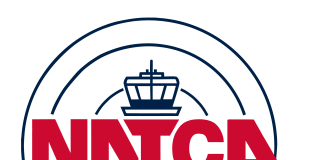TheNewsGuru.com reports that the electricity distribution companies (DisCos) have been mounting pressure on the Minister of Power, Works and Housing, Babatunde Raji Fashola to approve the increase as that remains the only way to improve the sector.
The Permanent Secretary, Ministry of Power, Louise Edozien, who spoke in Jos, lamented that low tariffs remained a stumbling block on the way of developing the power sector.
He spoke during the opening ceremony of the third National Council on Power (NACOP) meeting held at Crest Hotel and Garden Jos.
The theme of the meeting is: Completing power sector reforms.
He said: “I will like to focus on two major challenges of the sector. The first one is how to deliver available power on the grid to consumers, and the second is the problem of debts and other related issues of collection and tariffs.
“The tariff is too low, and some consumers still don’t pay their bills, in part because the DisCos have not metered them; so they are not sure they are paying for only what they have consumed. So, the DisCos do not pay Nigeria Bulk Electricity Trading (NBET) its full invoice. NBET in turn defaults in payment to the generation companies (GenCos).”
Meanwhile, the GenCos yesterday urged the Nigeria Electricity Regulatory Commission (NERC) to classify the stranded 2,000Megawatts (Mw) as part of the available generation capacity in the Nigerian Electricity Supply Industry (NESI).
The Commission, according to its presentation on the review of the Multi-Year Tariff Order (MYTO) methodology by Senior Manager, Market and Rate, Abbah Tera, takes generation capacity as one of the criteria for review of tariff.
Responding, the Executive Secretary, Association of Power Generation Companies (APGC), Mrs. Joy Ogaji, said the fact that the stranded capacity is not utilised does not mean that it is not produced by the GenCos.
She noted that there is enough gas but the only constraint its cost, stressing that the GenCos should not suffer owing to the stranded power.
She said: “We are not saying we don’t have enough generation. The only constraint that Nigeria is having is the cost of gas. We have over 2,000Mw sitting. The over 2,000Mw should be treated; it is available; GenCos should not suffer for it . In line with the review NERC should capture the stranded capacity.”
Some of the stakeholders urged the commission to privatise the Transmission Company of Nigeria (TCN) since it is obvious that the Federal Government which operates it has proven inefficient.
The Commissioner of Engineering Performance and Monitoring, Prof. Frank Okafor, however explained that the cost of funding the transmission network is too enormous for a private company to raise for the operation of the system.
“It will be difficult to get investors that will fund the TCN,” he said.
Besides, he said it might be difficult to secure the right of way for the network since it transverse so many states of the federation.
According to him, government is borrowing from multilateral financial agencies to expand the grid since the amount of power delivery is not sufficient to raise the required revenue.
The commission maintained that it has met with the TCN and DisCos in order to deliver the stranded power to consumers.
But for the commission to get stakeholders’ inputs on (the frequency of the review) how often the review should be carried out.
The stakeholders were also divided on whether the tariff should be reviewed bi-annually, monthly or yearly.
NERC carries out a major tariff review every five years and minor review every six months.
But speaking, representative of Mainstream Energy Solutions Limited, Musa Abba Bajoga, urged the commission to follow the global practice to “do what is done universally.”
The President Hotel Owners Association of Nigeria, Dr. Ezeh Udeh told the commission to consider a yearly review since hotel rates are not reviewed monthly and that any price that rises in the country hardly falls.
Network of Electricity Consumers Advocacy of Nigeria (NECAN), Tommy Akingbogun, told the commission not to use its rate to kill investors.
Edozien said: “Government, as part of the power sector recovery programme approved a N701.9 billion payment assurance guarantee to ensure NBET discharges its obligation to the GenCos.
“Government has also audited the N27 billion debts owed by Federal Government ministries, department and agencies (MDAs) to the DisCos and is taking steps to pay it.
“NACOP 2017 is taking place at an important moment in the journey. Our objectives are not met, so much remain to be done. NACOP 2017 is the appropriate forum to access our progress, reaffirm our commitment, examine the challenges of the moment and take decisions to overcome them to ensure this journey achieves the desired outcome.”
Plateau State Commissioner for Water Resources and Energy, Jafaru Wuyep in his goodwill message on the occasion expressed delight on the proposed Infrastructure Marshall of the Federal Government for the protection of public facilities from vandals.













